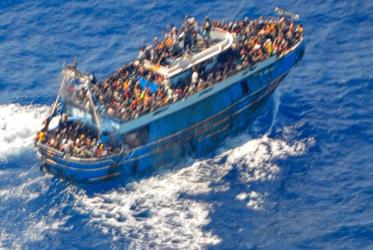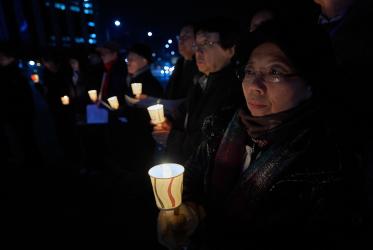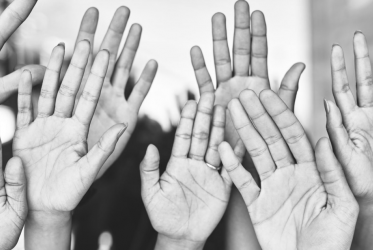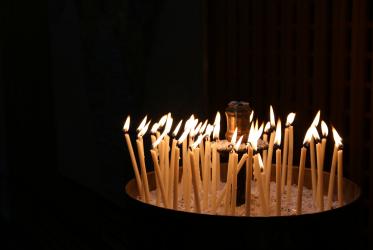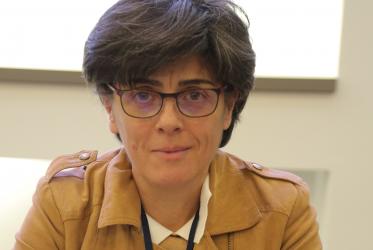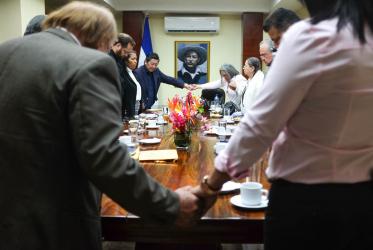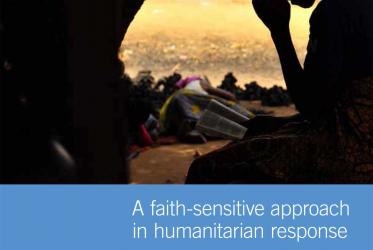Displaying 1 - 20 of 29
Webinar will remember past massacres in Europe
02 December 2021
Calls grow globally for peace and accountability in South Sudan
24 September 2021
In Lebanon, “without peace there is no justice”
21 July 2021
Hope prevails in times of crisis in Lebanon
14 September 2020
Young Africans are eager to grapple with challenges
09 January 2020
Dr Saïd Ailabouni: God is on the side of rejected, oppressed, occupied
12 September 2019
Erhard Hermansen: “The church in South Sudan needs our prayers"
09 September 2019
Dealing with traumas and healing of wounds
04 June 2019

